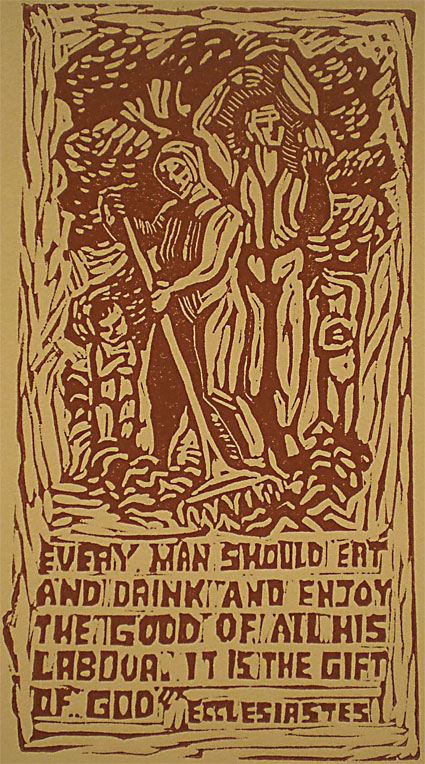How To Read the Bible
or The Real Hebel
James Jordan was asked whereabouts in the Bible is the best place to start reading it:
We should start in Genesis. What we should really do is pass a law that for five years you may only read Genesis through Joshua over and over again. So you get the foundation… When the Psalms and Ecclesiastes were written, they were written for people who were steeped in the earlier Scriptures. Ecclesiastes is not some mysterious book of philosophy. Ecclesiastes is all about the Feast of Tabernacles. The Feast of Tabernacles is literally the Feast of “Clouds.” That’s what sukkoth means. You get branches down out of a tree to make a little lean-to. Those branches up on that tree are a cloud. When you make a tree-house down here out of those branches, you’ve got your own little cloud. After a week it disintegrates. But God in His cloud, in His Tabernacle, goes on and on.
Solomon doesn’t say “vanity of vanities.” He says, “Mist, mist, all is mist.” We’re talking about clouds. All the things you make, they disintegrate. At the end of Ecclesiastes, your body is a cloud and it disintegrates. Who can shepherd the wind when everything is mist? God can shepherd the wind. He says, even though everything is disintegrating all the time, there is one thing that God has given you as a gift, and that is to eat, drink and be merry. That’s a quotation from Deuteronomy 14 describing the Feast of Tabernacles. You bring wine and strong drink and make merry before the Lord. The whole book of Ecclesiastes is written to people who do the Feast of Tabernacles. It reflects on it. But people forget that, so they read Ecclesiastes as if it were some piece of philosophy. It’s not. It’s about worship and life.
So, as you read the Bible, it’s helpful to remember where you are on the map. If you read Samuel or Kings, you must remember they were written to people who had Genesis to Joshua. That’s what’s in their brain.
Adapted from Reading the Bible (Again) For The First Time, Lecture 6, “The Three Falls of Mankind.”
On the significance of the Feast of Tabernacles, see A Place Called Clouds. For Paul’s overlooked allusion to it in Romans 11, see Seven Thousand Who Have Not Bowed to Baal – 2.



























June 8th, 2010 at 7:12 am
I really want to read Jordan on Ecclesiastes now. Has he written anything on it?
June 8th, 2010 at 12:06 pm
There’s a great Jordan lecture called “Partying with Solomon (Ecclesiastes),” plus the Biblical Horizons 2005 Conference lectures on the subject. All available from wordmp3.com – and these are all in the Complete Jordan collection – see link at right column. Gregg Strawbridge also has a series on Ecclesiastes, and there is Jeff Meyers’ recent book, “Table in the Mist.”
June 11th, 2010 at 12:01 pm
I forgot – there’s also Doug Wilson’s “Joy at the End of the Tether: The Inscrutable Wisdom of Ecclesiastes.” Haven’t read it yet but he has put a lot of excellent pithy quotes from it on his blog.
July 10th, 2010 at 4:16 am
Where did you get the image of that woodcut? I would love to contact the artist.
July 10th, 2010 at 11:17 pm
Hi Jedidiah
It is from here:
http://www.pathwayscollection.com/curl_restrikes.html